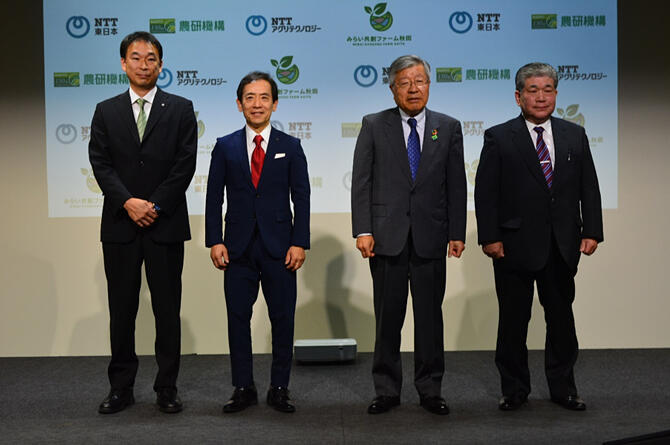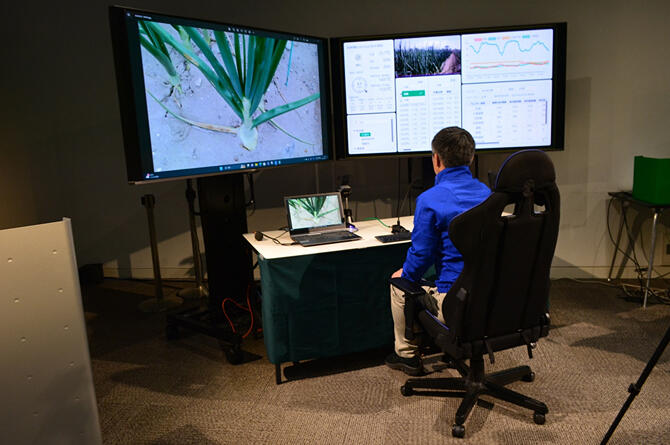The National Agriculture and Food Research Organization (NARO), NTT East, and NTT AgriTechnology will jointly launch a data-driven "Remote Farming Support Project" to support producers by integrating expert knowledge, AI, and ICT. The announcement was made on June 6 at the NTT InterCommunication Center (Nishi-Shinjuku, Shinjuku City, Tokyo). The project aims to establish a system that allows experts to support producers remotely using ICT. The system will first be tested in the fields of Mirai Kyousou Farm Akita, which is developing onion production areas in the Akita Prefecture. The aim is to demonstrate the effectiveness of the system and establish a business model to deploy the service nationwide, develop local agriculture, and ensure a stable supply of food. Experts will provide extensive guidance aiming at a stable food supply.

The project primarily focuses on weather-sensitive open-field cultivation and aims to build an energy-efficient network that can cover wide areas of fields where a power supply is difficult to secure. It also aims to enable producers to share field and crop images and environmental data with experts in real time. Experts will provide appropriate support and guidance to producers using the shared data as well as data and application programming interface (API) offered by the Agricultural Data Collaboration Platform "WAGRI," including Standard Operating Procedures (SOPs) developed by NARO. This will enable inexperienced farmers and producers attempting to create new production areas to operate their farms efficiently and effectively.
Mirai Kyousou Farm Akita has been working with NARO to create new onion production areas in 2023 and 2024 under the "Demonstration and Implementation of Strategic Smart Agricultural Technology" project of the Ministry of Agriculture, Forestry and Fisheries of Japan. In this project, experts will provide remote support and guidance for onion cultivation, utilizing the framework of this project to verify the effectiveness and improve the technology. The project has already demonstrated a track record of stabilizing production with data-driven support and guidance from NARO and aims to establish a system to provide remote support and guidance. If realized, efficient support and guidance from experts will be available for more regions and target crops, resulting in stable production and higher profitability for producers.
Furthermore, with the accumulation of data, the introduction of AI into the system has been discussed to complement the guidance of experts and automatically present cultivation work plans based on weather information and growth forecasts via analysis as well as delivery plans based on market dynamics forecasts. The goal is to establish a network and infrastructure that will allow the operator to remotely control the cultivation with the prospect of implementing robotics in farmland. The envisioned business model is a performance-based compensation system that will allow producers to realize a return on their investment.
Taiga Sakai, CEO of NTT AgriTechnology, said, "When experts can play an active role, it creates a positive impact that ripples through the producers, and when farmers can cultivate properly, it will create a virtuous cycle in the region. We believe that we can create such a cycle."

The environment surrounding Japan's food system is facing numerous risks, including globalization, a decline in the agricultural work force, a shortage of successors owing to the aging population, and the intensification of climate change, making food security reinforcement the most urgent priority. In 2020, NARO, NTT East, and NTT AgriTechnology signed a partnership agreement to promote R&D aiming at improving productivity, saving on labor, and reducing risks through data-driven approaches.
This article has been translated by JST with permission from The Science News Ltd. (https://sci-news.co.jp/). Unauthorized reproduction of the article and photographs is prohibited.




